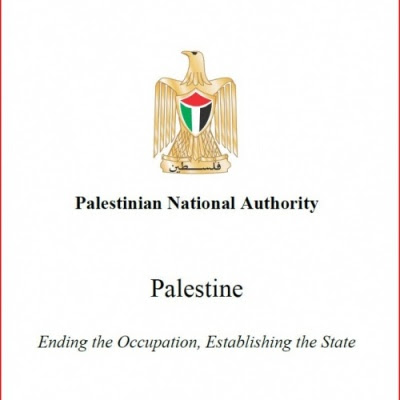When you think of Palestine, “permaculture” is not the first association that comes to mind, but it is a concept with striking relevance. Not far from Bethlehem, tucked away in the valley below Shepherd’s Field, is a little community called Bustan Qaraaqa (Tortoise Garden). Given the difficulty of access to services and resources in the Occupied Palestinian Territories, this experimental project takes its departure from the idea that, through community farming and sustainable living, we can find creative ways to use the things around us to fill our needs. In a context where you are cut off from large portions of your land and prohibited from consistent access to water, self-sufficiency and permaculture (permanent culture) make sense as guiding ideals.
Bustan Qaraaqa is part of the wave of grassroots activism around the world, which identifies a connection between politics and lifestyle, between developing a healthy relationship with the environment and social empowerment. Living simply and sustainably can become a method of getting beyond a dependency on party politics, delinking oneself from the interest-driven system of money and power that dominates official political programs. Bustan Qaraaqa identifies itself as part of a Green Intifada, a grassroots democratic movement based on an ethic of caring for the environment and community. Founded in 2008 by four young British ecologists, the project works closely with the community to promote creative ways to use water efficiently, both in the household and for irrigation, and an array of composting techniques which serve the dual purpose of increasing soil fertility and dealing with waste management. In addition, they have a tree nursery, reuse waste in green building, and will soon be embarking on fish farming.
When sitting on the porch at Bustan Qaraaqa, the conversation often returns to that most precious of resources: water. It is hard to imagine living in a situation where you turn on the tap and find that nothing, not a drop, emerges. But that is the reality in many parts of the West Bank, where water is often, without warning, redirected to the nearby Jewish settlements. In these conditions, this group is trying to find ways to create resilience and self-reliance. Pursuing constructive ways to cope with the difficulties of living under occupation, the guesthouse attached to the farm serves the secondary function of educating young people who are travelling through about the hardships of life under occupation, the injustices that are too rarely reported.
For example - Israelis and Palestinians share two interrelated water systems, but while a significant amount of this water is located within the territory of the West Bank, the majority of it is used by Israelis. Three aquifers are located on the border between Israel and the OPT. Israel uses 95% of the water in the western aquifer, 67% of that in the north, and though the eastern one is located entirely in the West Bank, 40% of its water is used by Israel and settlers (See Passia and Palestine Monitor for detailed fact sheets). According to the World Health Organization, the minimum amount of water intake per person per day should not be below 100 litres. But in the West Bank, only 16% of the population has access to this amount. Settlers, meanwhile, have access to about 600 litres a day. The problem with water in this region is not a lack of resources; there is enough to go around. The problem is inequitable distribution.
In addition to limited access to clean water, the classification of land within the West Bank makes building infrastructure, wells, and waste management systems, a highly laborious and bureaucratic process. The distinctions between Areas A, B and C is an affront to the newcomer’s imagination. The outsider might assume that Palestinians have control over the land on their side of the Green Line. But in reality, the West Bank is divided into areas in which the Palestinian Authority can and cannot operate. The PA has full administrative authority only over Area A, which is generally made up of urban areas and population centers. Meanwhile, over 60% of land in the OPT is classified as Area C, land on which the PA is not allowed to build or do maintenance. This essentially turns the West Bank into an archipelago of separated and isolated islands, which are unable to make use of the space and resources outside their strictly defined perimeters. Without that land, it is impossible to deal adequately with waste and sewage, or to build the structures required to provide consistent access to resources. Palestinians are, then, essentially barred from the freedom to construct a healthy, safe, and sustainable relationship with their environment – in the usual ways.
But the unusual ideas advocated by Bustan Qaraaqa may supply an alternative. While their compost toilet and the mulch created out of household trash may seem far fetched, this community is offering a model, an ethic, and a spirit, that is not atypical in this region. And though external funders and big donors try to promote grand projects and bring in well-paid private contractors, the Bustan exemplifies the ethos that emerges time and time again in Palestine: in ensuring the permanence of Palestinian culture on this land, the way forward must be one of community-based empowerment, which preserves a healthy relationship with the environment, and a fundamental hope in people, not politics.
Leah Hunt-Hendrix is a Writer for the Media and Information Department at the Palestinian Initiative for the Promotion of Global Dialogue and Democracy (MIFTAH). She can be contacted at mid@miftah.org.
 RE: Direct to where? In the face of US pressure, direct talks between Israel and the PA look inevitable. But what will the results be, asks Dina Ezzat
RE: Direct to where? In the face of US pressure, direct talks between Israel and the PA look inevitable. But what will the results be, asks Dina Ezzat















